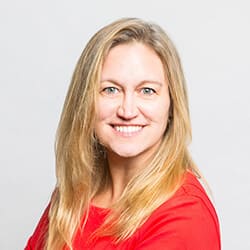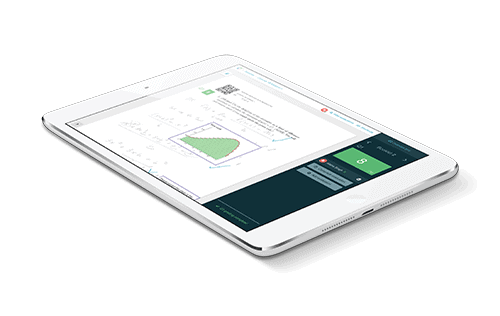Our Story
The idea for Crowdmark arose as a solution to a real-life challenge. When University of Toronto Mathematics Professor James Colliander was tasked with grading 5,000 handwritten exams, each 14 pages long, for the 2011 Canadian Open Mathematics Challenge (COMC), he knew there had to be a better way.
Due to the complexity of the mathematics involved, the grading required skilled volunteers to evaluate specific questions. This meant sorting and grading 70,000 pages by hand, with some volunteers focused on early pages and others on later ones.
By matching human skills to pages, different teams graded on a page-by-page basis. This made the process and logistics of grading quite complex. There was a lot of paper shuffling. A lot!…and a lot of waiting around for various teams to finish their sections.
Determined to solve this widespread problem faced by educators globally, Professor Colliander partnered with his graduate student, Martin Muñoz, to find a solution. Together, they developed a software prototype to streamline grading for the 2012 Sun Life COMC. Collaborating with the Canadian Mathematical Society, a partnership of eight universities, volunteers using Crowdmark graded the exams in half the time compared to the previous year. With a proof of concept as a scalable solution achieved, Crowdmark as a company was born.
Shortly after Crowdmark’s founding, Michelle Caers joined the team, bringing deep expertise in both education technology and startup leadership. Michelle played an instrumental role in transforming Crowdmark from an innovative idea into a thriving business, guiding its strategic growth and expanding its impact.
With our singular focus on improving assessment and unwavering belief that education is fundamentally a human-to-human experience, Crowdmark grew into the successful company it is today. Our platform is now utilized by millions of students and thousands of educators around the world. As our community continues to grow, we invite you to become part of our story.



Cofounders James Colliander, Michelle Caers, and Martin Muñoz
Our mission is to enrich the learning and teaching experience for students and educators by transforming assessment into a dialogue for improvement.

Our Core Values
Integrity
Integrity is intrinsic to everything we do. Our platform enables unbiased grading by keeping the student identity anonymous during the grading process. Academic integrity of assessments is improved by archiving a digital copy of student work that cannot be altered.
Collaboration
The education system, as developed over millennia, organizes a collaborative dialog between learners and teachers. Crowdmark values and improves this collaboration by building new communications channels among students and instructors designed to improve learning.
Community
Crowdmark values learning and views our community of collaborating educators as our greatest inspiration. We listen and improve with input from the people who are teaching and learning with our platform.
